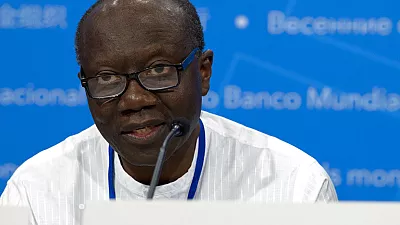The finance minister, Ken Ofori-Atta has outlined seven strategies by the government to address recent economic challenges facing the country.
Towards addressing the macro-fiscal challenges the economy faced in 2022, government engaged the International Monetary Fund(IMF) to support the implementation of the Post-COVID-19 Programme for Economic Growth (PC-PEG).
Subsequently, Ghana secured an IMF programme in May 2023. This was followed by a disbursement of $600 million as the first tranche of the Extended Credit Facility (ECF) programme
Presenting the 2023 mid-year budget review in parliament, Ken Ofori-Atta said the programme has been designed to address the key issues facing the economy through the following key priority targeted interventions;
- Large and frontloaded fiscal consolidation to bring public finances back on a sustainable path. The programme envisages a cumulative fiscal adjustment of 5.1 percentage points (ppt) of GDP over the programme period (2023-2026) with a fiscal effort of 3.8 percentage points (ppt) in 2023 alone. The primary deficit on commitment basis will be reduced from 4.3 percent of GDP in 2022 to 0.5 percent in 2023. The fiscal consolidation will be executed by both mobilising more domestic revenue, and improving the efficiency of spending.
- Protect the vulnerable through enhancement of existing social protection programmes, including the Livelihood Empowerment Against Poverty (LEAP), National Health Insurance Scheme (NHIS), the Capitation Grant, and the School Feeding Programme. The 2023 Budget, for example, doubled the benefits under the LEAP Programme as well as boosted the allocations to the School Feeding Programme.
- Strong and ambitious structural reforms in tax policy, revenue administration, public financial management, financial sector, as well as strong measures to enhance revenue mobilisation and address weaknesses in the energy and cocoa sectors – both are critical to bring public finances back on sustainable path while creating fiscal space for critical development spending.
- Bring inflation under control through prudent monetary policy including appropriate monetary policy tightening and the elimination of monetary financing of the budget. Containing inflation pressures requires coordination between fiscal policy and monetary policy.
- Rebuild international reserve buffer to 3 months of imports by the end of the Programme. The Bank of Ghana is pursuing enhanced flexible exchange rate policies to help rebuild international reserves.
- Restore debt sustainability and preserve financial stability following the Domestic Debt Exchange Programme (DDEP) to support private investment and growth.
- Pursue reforms to encourage private investment, strengthen growth, and create more jobs.



